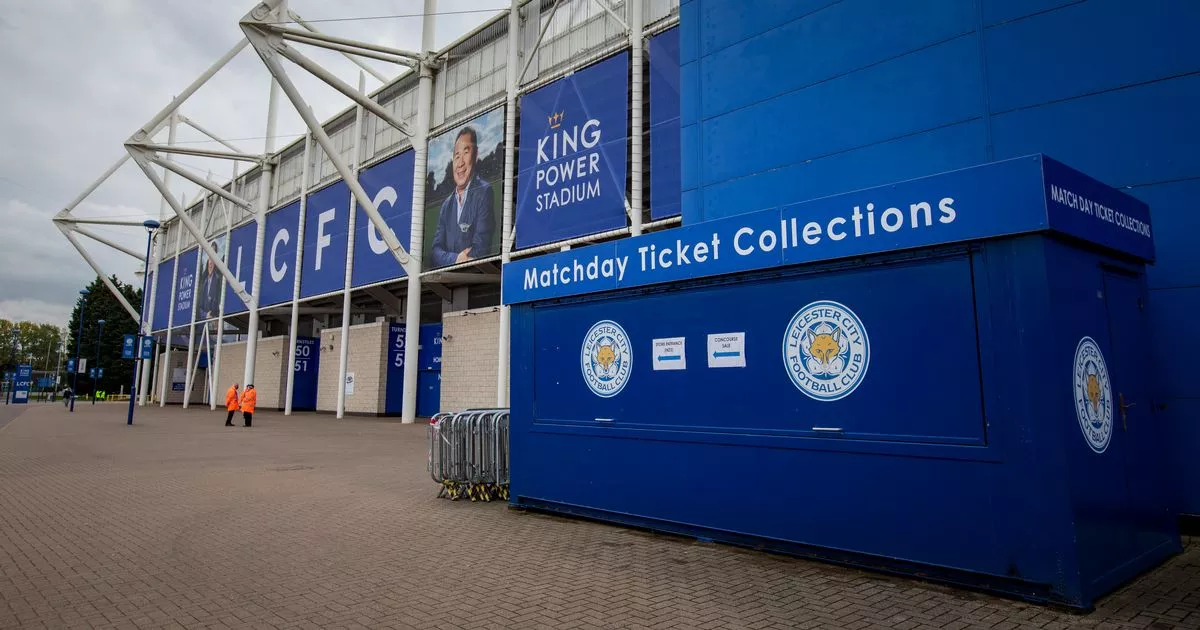Leicester City have published their accounts for the 2019-20 season, showing a loss of £67m as the effect of the pandemic on the club's finances starts to become clear
Continued investment in the playing squad and club infrastructure in spite of Covid-19 has seen Leicester City record a heavy loss for the 2019-20 season, accounts published on Friday show.
The impact of the pandemic is being felt by clubs across the country and it is evident at
City too, with a significant pre-tax loss of £67m recorded for last season, compared to a £20m loss the previous year.
City’s commitment to improving the playing side as they push up the Premier League, as well their endeavour to build a state-of-the-art training base at Seagrave and expand the King Power Stadium is shown in the accounts, as too the impact of the pandemic.
Although these accounts only cover three months in which football was affected by Covid-19, the virus has contributed to £13m in losses for City, including £9m of a Premier League broadcasting rebate, and £4m through a drop in expected gate receipts and ticket refunds, with matches at the King Power Stadium played behind closed doors.
The club also retained all permanent staff and did not utilise the government’s furlough scheme.
The temporary postponement and late finish to last season means a combined £33m in Premier League central payments and sponsorship money are deferred to next season’s accounts, hence a drop in revenue to £150m, down from £178m the previous year.
However, City will also incur costs from the delay to the season that will appear in next year’s accounts, such as end-of-campaign bonuses.
With all of the current season so far played behind closed doors, the effect of Covid-19 will be seen more heavily in next season’s accounts, albeit City will then have the boost of central payments from Uefa too, following their Europa League campaign.
The pre-tax loss of £67m is not unusual by Premier League standards amid the pandemic, with West Ham, Brighton, Spurs, Southampton, and Everton all posting losses of more than £60m for the financial year.
Beyond the headline losses, the accounts show a continued investment by the club, and continued backing by King Power.
City spent £70.5m on their training ground at Seagrave in 19-20, the accounts show, with the new headquarters opening just before Christmas. Combined with the £13m spent on the training ground the previous year, and the £19m spent since last May, the cost of the new base comes to just over £100m.
The next project is the expansion of the King Power Stadium, with an increased attendance to the low 40,000s the aim for the club.
City have now confirmed the acquisition of land next to the ground on which to do the works, while a further £1.8m has been spent on design and feasibility since the summer.
City spent £105m on transfers during the period in the accounts (down from £119m the previous year), relating to the signings of Youri Tielemans, Ayoze Perez, Dennis Praet, and James Justin in the summer of 2019. The club also made £63m profit on the player sales, principally relating to Harry Maguire’s big-money move to Manchester United.
Since these accounts, there has been a £17.9m net spend on transfers, taking in the signings of Timothy Castagne and Wesley Fofana, the loan recruitment of Cengiz Under, and the sale of Ben Chilwell.
The wages of the club have risen slightly, from £150m to £157m, which still places them eighth highest in the Premier League, behind the ‘big six’ and Everton. However, staff costs as a percentage of turnover come in at 105 per cent, the highest of any club in the Premier League since QPR in 2013.
King Power’s continued commitment to City is clear, with the club reliant on loans from their parent company, and through their deals with Australian bank Macquarie.
During 19-20, there was a £44m increase in the King Power working capital loan, a £67m increase in the King Power training ground loan, and a £24m increase in third-party loans, totalling £135m. There was also a repayment of £18m.
Since these accounts, the club has entered into two five-year loan facilities totalling £30m with chairman Aiyawatt Srivaddhanaprabha, while it has increased and extended its £45m facility with Macquarie to January 2022, also entering into a further £16.4m facility with the Australian bank.
The accounts also state that King Power will provide further funding if necessary over the next 18 months, with none of the existing liabilities to be called in over the foreseeable future.
As of the end of these accounts, City owe £126m to King Power International.
Chief executive Susan Whelan said: “While the early impact of Covid-19 on commercial revenues is clear, 2019-20 was still a season of considerable progress. On the pitch, we secured a return to European football with our second highest-ever Premier League finish and, off it, we were able to support our people through times of hardship, further strengthening the bond between the club and its communities.
“Those two principles – of exciting footballing progress and our role as a force for good for our people and our community – are fundamental to the club’s vision and products of our efforts to reinvest revenues generated into the club’s long-term future, even in difficult times.
“The commitment of the club’s parent company also underpins our long-term ambition to be a consistent challenger domestically and a competitor in Europe each season – a vision of which sustainable reinvestment in our football operation is a key component. Our 2019-20 accounts include significant investments relating to the development of our new training centre in Seagrave, as well as considerable further investment in our first team playing squad, the benefits of which have been evident in sporting performance this season.
“An end to those difficult times of the last year is now hopefully in sight and we look forward to continuing our pursuit of that vision, with our supporters once again a visible, audible and integral part of the Leicester City journey.”

 www.leicestermercury.co.uk
www.leicestermercury.co.uk


